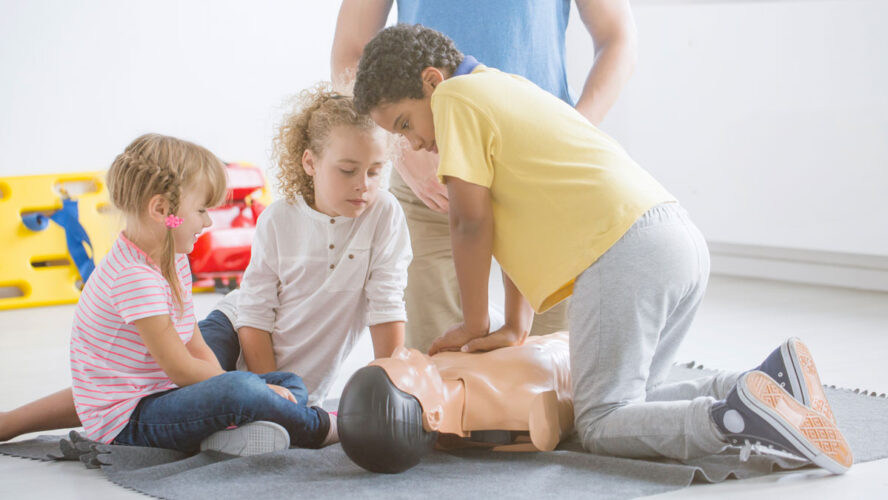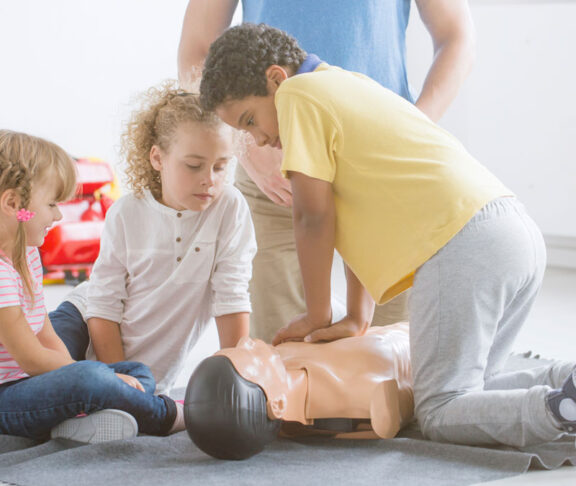
Esther Kuku
Director of Communications and Engagement, Resuscitation Council UK
Too many young people are leaving school without learning CPR — a vital, lifesaving skill. Without better support and monitoring, policies alone won’t close the gap in training.
Even though governments and local authorities across the UK introduced policy in 2019 to make sure CPR is taught in secondary schools, too many students are still missing out on this lifesaving skill.
It’s about monitoring the training
Research commissioned by RCUK in 2025* shows a worrying gap. Nearly four in 10 students say they’ve never been taught CPR at school. However, the good news is: of those who have, over 70% say they’d feel confident stepping in to help if someone suffered a cardiac arrest. So, the training works; the problem is that not enough students are getting it.
What is going wrong? There is no reliable evidence that the 2019 policy change is currently being delivered. No proper monitoring and support means students are leaving school without learning this vital life-saving skill.
It’s not just us raising the alarm. A huge 91% of parents think the Government should do more to help schools deliver CPR training. The demand is there, but the delivery isn’t consistent.
Why CPR education matters so much
Cardiac arrest is the ultimate medical emergency. When someone’s heart stops, every second counts. Early CPR can double their chances of survival, and it’s a simple skill that anyone can learn.
Published in 2024, RCUK’s Inequalities in Resuscitation report highlighted how countries that teach basic life support in schools see survival rates up to two to three times higher than those that don’t. We could be saving more lives if we made CPR a guaranteed part of every child’s education.
Early CPR can double their chances
of survival, and it’s a simple
skill that anyone can learn.
Supporting schools, not adding pressure
This isn’t about adding further work; we know teachers are already stretched. That’s why we offer free, easy-to-use CPR training resources. Schools can also join Restart a Heart each October, a global event that makes learning CPR simple and accessible.
Working together to save lives
We all have a role to play. We’re asking governments, education bodies, inspectorates and local authorities to join forces and ensure CPR training is being carried out. Building it into the school inspections process is one way to achieve this.
*Research conducted by Opinion Matters among 1,000 UK parents of children aged 4–18 in school, and 1,000 young people (Scotland 16–24, England 16–23, Wales 16–19) who have attended school since 2019–2022. Fieldwork: 20–25 March 2025.


